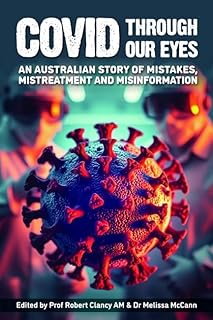Trust in medical professionals faces a significant challenge as fringe conspiracy theories and misinformation gain traction in the mainstream, raising concerns among healthcare experts. Dr. Colin Doherty, head of the School of Medicine at Trinity College Dublin and a consultant neurologist at St James’ Hospital, highlighted the gravity of the situation, emphasizing the impact on future healthcare practitioners.
In a recent address to budding doctors, Dr. Doherty underscored the prevalence of fringe conspiracy theories within institutions with a rich public health legacy. He drew parallels to historical instances, such as the 1930s in Germany, to underscore the gravity of the current situation. Notably, he pointed to the rise in vaccine skepticism, citing beliefs in microchips in vaccines for population control, links to autism, and unfounded claims of mass casualties.
Dr. Doherty debunked the notion that social media alone is responsible for the dissemination of such misinformation, highlighting historical precedents of disinformation spread through pamphlets and newspapers. While acknowledging the role of social media in accelerating the spread of conspiracy theories, he emphasized a broader societal shift towards what he termed a “phase of darkness,” hinting at a pervasive atmosphere of mistrust and misinformation.
These conspiracy narratives, according to Dr. Doherty, have notably emerged in the aftermath of the COVID-19 pandemic, reflecting a broader trend of skepticism towards established medical practices. Despite the challenges faced by medical professionals during the pandemic, he commended their efforts in navigating unprecedented circumstances and providing essential care.
The proliferation of wild conspiracy theories poses a multifaceted challenge to the medical community, eroding trust and complicating public health efforts. As misinformation spreads rapidly through various channels, the need for critical thinking and robust communication strategies becomes increasingly paramount. Experts like Dr. Doherty emphasize the importance of addressing these narratives head-on, debunking falsehoods, and reinforcing the credibility of evidence-based medicine.
In an era marked by rapid information dissemination and heightened uncertainty, combating wild conspiracy theories requires a concerted effort from healthcare professionals, policymakers, and the public at large. By fostering a culture of transparency, scientific literacy, and trust in medical expertise, the healthcare community can navigate the complexities of a post-truth landscape and uphold the integrity of public health.
📰 Related Articles
- American Medical Association Leads Ethical AI Integration in Healthcare
- abrdn UK Smaller Companies Growth Trust Reveals NAVs Transparency
- Wikipedia’s Future Amid AI Disruptions and Misinformation Challenges
- Why BMC Outsources Sonography Services: Impact on Healthcare and Stakeholders
- Western Sydney University Launches Groundbreaking Healthcare Education Simulator






